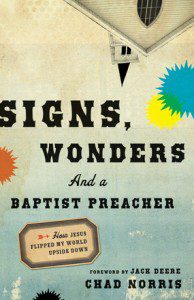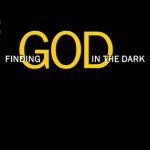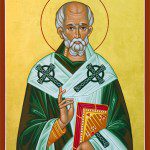 I once heard a sermon, titled “A Virtue in Vagueness.” I don’t recall a word of the message or know if the phrase was original with the preacher, but the title has stuck with me for over thirty years. Chad Norris’ new book, Signs, Wonders, and a Baptist Preacher, is both specific and vague. Despite our apparent theological differences, I really enjoyed the book. It’s about thinking big, expecting great things, and trusting God’s love. There’s not a lot of seminary-style theology, but there’s a good deal of practical theology born of trusting God, launching out into the deep, and seeing what happens. Norris doesn’t blame the victim or try to rationalize the ways of God to persons who don’t get well; he doesn’t invoke words or phrases like omnipotence, sovereignty, God’s will, or God’s plan, although he may believe these doctrines. There’s not the hubris of a Rick Warren who can definitively state that every important thing – positive or negative – comes from God’s hand without our input, or who justifies our pain and trauma by suggesting that it’s Father-filtered! Just tell that to a child compelled by circumstances to be a sex worker, the parent of a child with cancer, or a sibling of one of the Sandy Hook children! The only honest response is that a God who traumatizes or murders children as part of God’s plan is morally little better than the Devil, but only if all persons are eventually saved. If God’s will includes both trauma and damnation for those who begin life as innocent children (for example, sex workers unable to belief in God), then the God some worship frankly resembles the Devil that such faithful believe in.
I once heard a sermon, titled “A Virtue in Vagueness.” I don’t recall a word of the message or know if the phrase was original with the preacher, but the title has stuck with me for over thirty years. Chad Norris’ new book, Signs, Wonders, and a Baptist Preacher, is both specific and vague. Despite our apparent theological differences, I really enjoyed the book. It’s about thinking big, expecting great things, and trusting God’s love. There’s not a lot of seminary-style theology, but there’s a good deal of practical theology born of trusting God, launching out into the deep, and seeing what happens. Norris doesn’t blame the victim or try to rationalize the ways of God to persons who don’t get well; he doesn’t invoke words or phrases like omnipotence, sovereignty, God’s will, or God’s plan, although he may believe these doctrines. There’s not the hubris of a Rick Warren who can definitively state that every important thing – positive or negative – comes from God’s hand without our input, or who justifies our pain and trauma by suggesting that it’s Father-filtered! Just tell that to a child compelled by circumstances to be a sex worker, the parent of a child with cancer, or a sibling of one of the Sandy Hook children! The only honest response is that a God who traumatizes or murders children as part of God’s plan is morally little better than the Devil, but only if all persons are eventually saved. If God’s will includes both trauma and damnation for those who begin life as innocent children (for example, sex workers unable to belief in God), then the God some worship frankly resembles the Devil that such faithful believe in.
I am glad Chad Norris’ book is much more humble. He loves God, sees God as resembling Jesus, and believes God is on our side. He believes God wants us to do great things in seeking his vision for health and healing. Even though Norris’ theology is conservative, his vision of God is progressive: God is love, cares for us, wants us to be well, and seeks our healing rather than destruction. Oddly enough, many people who invoke “God is love,” somehow believe that God plays favorites in dispensing God’s blessings, God sends plague and pestilence, and God actually hurts to heal. I don’t sense that in Norris’ work.
Many of my progressive friends see no place for divine healing in our world. God works with spirits and social structures, they believe, but not with the cells of our bodies. To some of my progressive friends, Jesus’ healings are an embarrassment or are reduced solely to acts of radical hospitality and social transformation. While I support the position that Jesus’ ministry involved radical hospitality, this radical welcome involved transforming bodies and spirits as well as person’s social situation. Perhaps, hospitality not only reflected a cure but was a factor in effecting a cure of diseased persons.
I believe that the world is more wonderful than we typically imagine and that our world is created in such a way that quantum leaps of energy and insight can transform bodies as well as spirits. This happens not only among Christians but in the context of complementary medicine and holistic health practice as well.
Chad Norris’ use of the term “naturally supernatural” passes the positive text of “a virtue in vagueness.” He doesn’t try to define how the healings occur, but reports that faith can elicit such cures. He doesn’t try to rationalize why healings and cures don’t occur and certainly doesn’t invoke lack of faith among the “failures” as some preachers do. He doesn’t talk about suspending the laws of causation for a miracle healing to occur. There just seems to be a confluence between faith, expectation, event, and God’s desire to heal, and that’s when a healing occurs. If this is his position, then we have some important common ground. I must add that Norris leaves a lot unsaid and that his vision of a loving God is marred, if he believes his church’s doctrinal statements that proclaim the “eternal torment” of unbelievers in hell.
Nevertheless, there is hope that we can still pray together and expect God’s healing presence to transform our lives. From my perspective, to call something “naturally supernatural” is to proclaim a lively naturalism, grounded in the providential presence of a Loving Energy that moves within the causal events of life, not violating their natural interdependence, but seeking to bring healing and wholeness in every situation. This power, as I see it, invites us always to see more and be more, to expect miracles – surprising quantum leaps of energy and synchronous encounters. It reminds us that there is a deeper realism at work in the world, grounded in God’s call and response, always respectful of human agency, and working in partnership with that agency to bring beauty, justice, and wholeness to the world. A Shalom-seeking God can do greater things (John 14:12) when we choose to be God’s partners in healing the world. Prayer and positive affirmations, contemplation and laying on of hands, energy work and medication, meditation and meditation, open the doors for a greater divine-human partnership. This partnership does not insure cures but opens the door to their possibility. This is “natural” precisely because it reflects the deeper “laws” of the universe, the healing energy present everywhere and available to all, within and beyond the church. We don’t experience it often because we don’t seek it, pray for it, trust it, or yearn for it.
Chad Norris and I both recognize, despite very different theological starting points, that faith and prayerful intercession, open up the doors of perception, elicit new possibilities, and bring forth greater energies that can transform us, those for whom we pray, and our world. I believe we should pray for interviews, relationships, cures of cancer, heart disease, and other maladies. Our prayers add something to the world and in the surprising interdependence of life may even bring about the results for which we pray. The world is more than we can imagine and recognizing the wondrous Loving Energy that undergirds each moment is the first step to living in a lively and life-transforming world. This Loving Energy is available to all – it is not solely the possession of evangelical Christians or faithful pray-ers; I believe that the Holy One responds to the cares and deepest desires of seekers, spiritual but not religious folk, Hindus, Buddhists, and pagans, atheists, and agnostics as well. That’s what it means to believe that “God is love.”
For more conversation on this book – and others of interest – visit the Patheos Book Club here.













